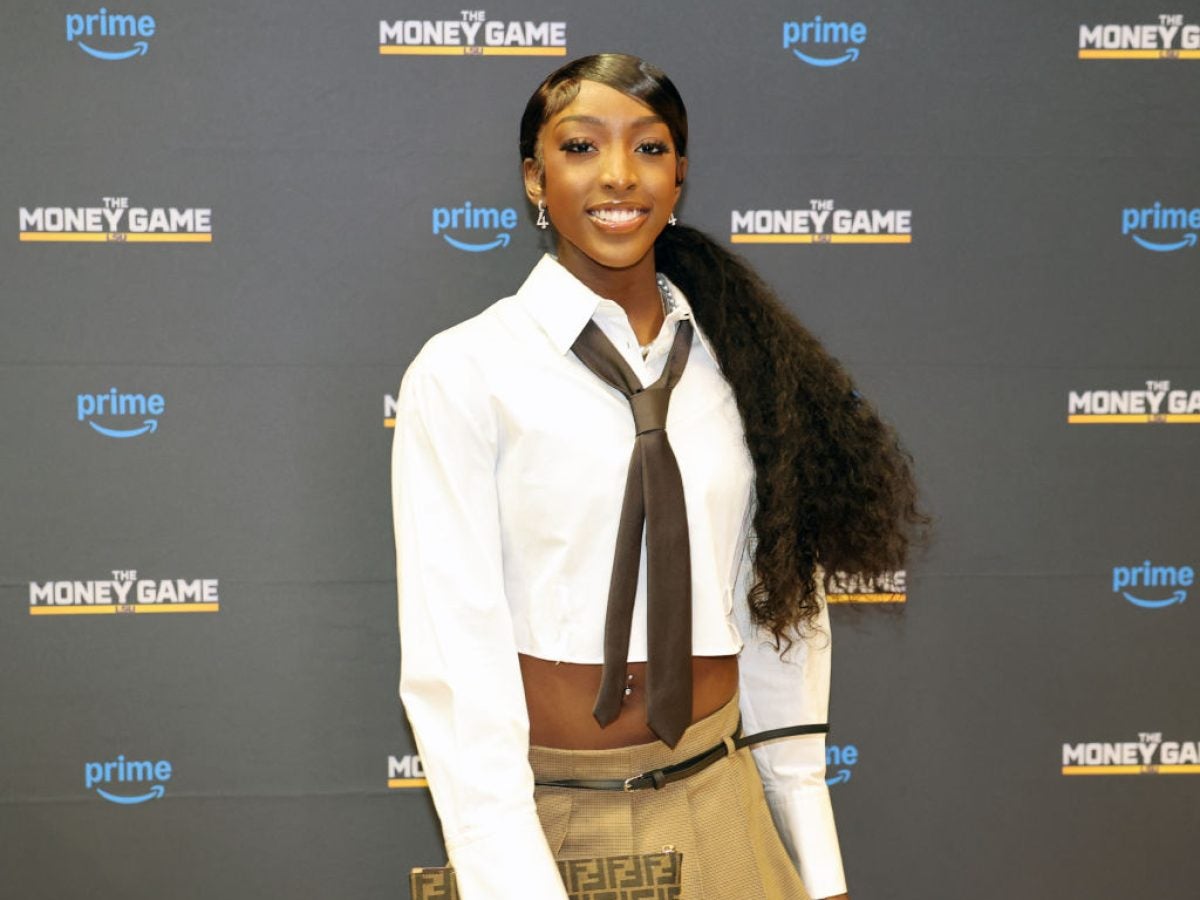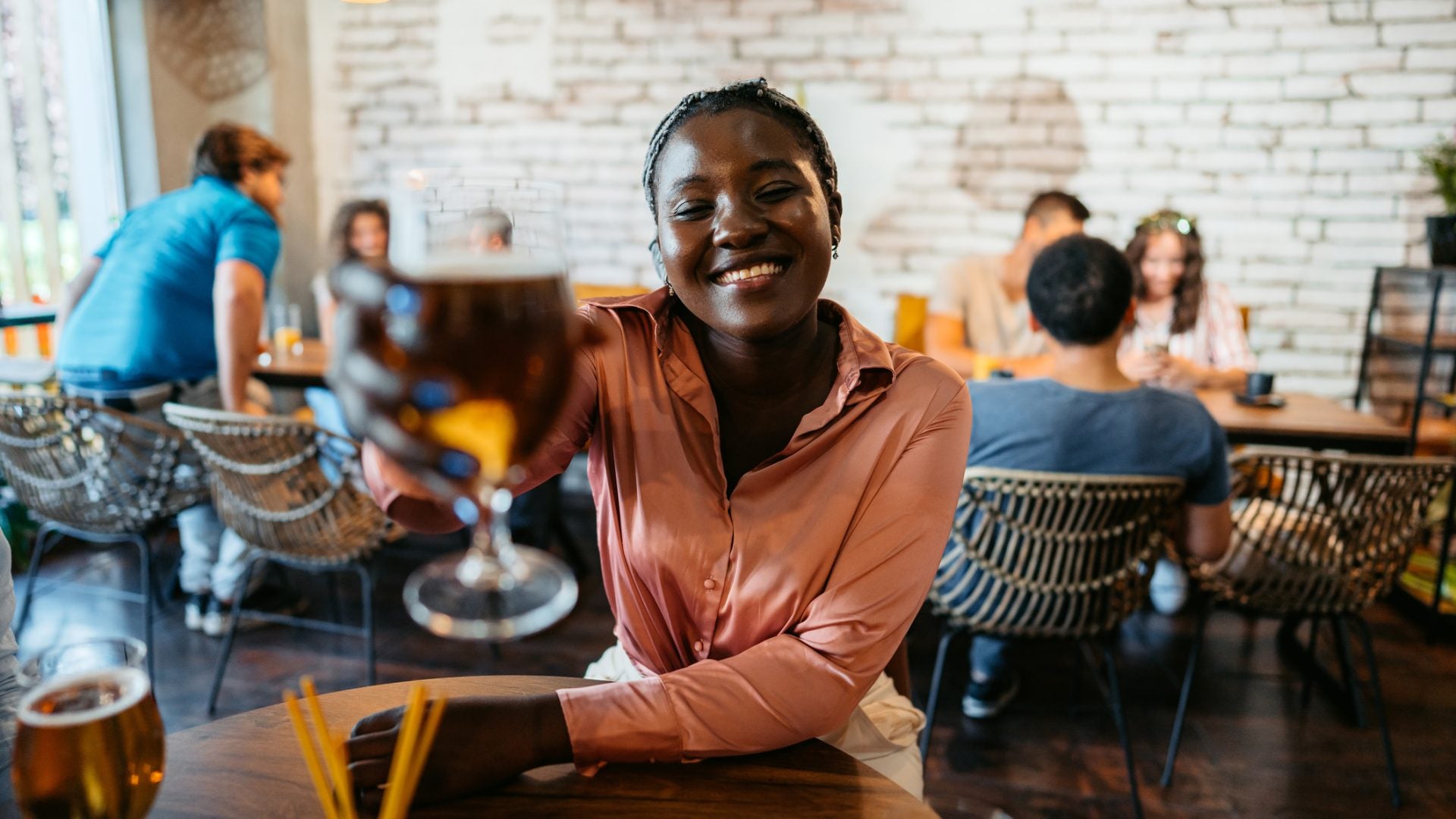
I remember watching ESPN’s ’30 For 30′ documentary on the Fab Five when I was in college and being completely blown away by not only their talent, but their stories. Though it was truly one of the most epic eras of college basketball, what many people don’t know is the struggles some of those players faced — being away at school while trying to support their families back home. And it really didn’t sit right with me considering how much we all know those schools were making off of their blood, sweat and tears.
It was a stark reminder of how the old system failed to support student-athletes, particularly those from disadvantaged backgrounds.
Fast forward to today, and thankfully the tides have turned. The introduction of Name, Image, and Likeness (NIL) deals has completely transformed the landscape of college sports. And you know who’s leading this revolution? Black athletes, with Black women, in particular, showing everyone how it’s done. It’s not just about making money – though let’s be real, that’s a significant part of it. These women are changing the game, both on and off the field.
Take the recent NCAA Women’s Basketball Championship. LSU’s Angel Reese didn’t just dominate on the court – she turned her success into a goldmine. After that viral moment with Caitlin Clark, Reese’s social media exploded, and so did her bank account. Reebok and Amazon came knocking, and just like that, Reese became the poster child for NIL success.
Over in the world of gymnastics, Trinity Thomas from the University of Florida is flipping the script (see what I did there?). This 27-time All-American isn’t just sticking landings; she’s sticking lucrative deals too. In a sport where Black women haven’t always gotten their due, Thomas is showing everyone how it’s done.
In the world of track and field, Sha’Carri Richardson has proven that setbacks don’t define an athlete’s marketability. Despite the challenges in her Olympic journey, Richardson has leveraged her bold personality and undeniable talent into significant brand partnerships. Her deal with Beats by Dre demonstrates how NIL opportunities can provide a platform for athletes to maintain their public presence and financial viability, even when facing obstacles in their competitive careers. Richardson’s story is a powerful example of resilience and adaptability in the evolving landscape of sports marketing.
These deals aren’t just padding bank accounts – they’re amplifying voices that need to be heard. Flau’jae Johnson, another standout from LSU, exemplifies how NIL deals can benefit athletes with diverse talents. Johnson has successfully leveraged her dual careers as a basketball player and a rapper into lucrative partnerships. Her deal with Puma goes beyond typical athletic endorsements, allowing her to showcase her multifaceted abilities. This partnership demonstrates how NIL opportunities can empower athletes to build personal brands that encompass their full range of talents and interests, both athletic and non-athletic.
Many of these athletes are using their new platforms to shine a light on important issues. Aaliyah Gayles, a USC basketball player who survived a shooting, is using her NIL opportunities to speak out against gun violence. Talk about turning pain into purpose.
But let’s keep it real – it’s not all smooth sailing. Despite the opportunities NIL deals present, there are still disparities to address. According to data from Opendorse, a leading NIL technology company, while 52% of Division I athletes are people of color, they only received 16% of the total NIL compensation between July 2021 and June 2022. This gap underscores the ongoing challenges in ensuring equitable access to NIL opportunities. Something doesn’t add up there, right?
Still, things are looking up. The NIL Summit in Atlanta recently put diversity front and center, showing that the sports marketing world is finally waking up to the power of authentic voices. More and more brands are realizing that when it comes to connecting with fans, Black women athletes are the real MVPs.
So, what’s the scoreboard looking like for the future? It’s Black women athletes: 1, Old Guard: 0. These women aren’t just changing the game; they’re creating a whole new playbook. They’re turning their talent into cold, hard cash, sure, but they’re doing so much more than that. They’re becoming entrepreneurs, advocates, and role models.
In this new world of college sports, Black women athletes are securing more than just the bag – they’re securing a better future for the next generation. And let me tell you, it’s a beautiful thing to watch. Game on, indeed.





